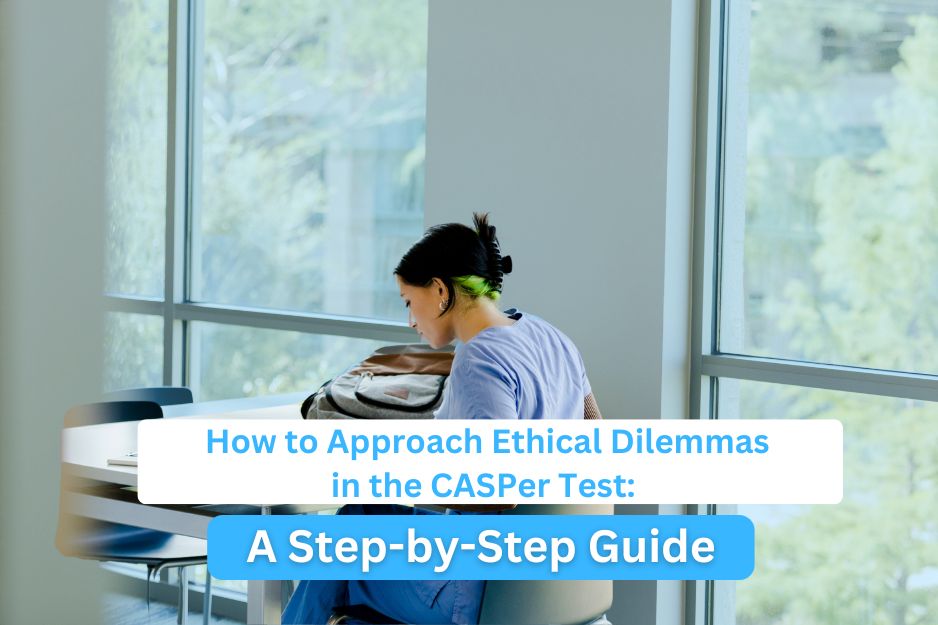Understanding the Importance of the MCAT
For many aspiring physicians, the path to medical school begins with mastering the Medical College Admission Test (MCAT). In North America, the MCAT is a critical factor alongside GPA in determining the competitiveness of a medical school applicant. While other countries, such as the UK and Australia, have their own medical admissions tests like the UKCAT, UMAT, and GAMSAT, the MCAT remains the standard for North American schools.
What score is 70% correct on the MCAT?
MCAT raw scores are converted to scaled scores (118–132 per section). About 70% correct roughly translates to a 125 per section, or around 500–502 total, depending on the test year and scaling.
What is the most efficient way to study for the MCAT?
Focus on active learning: practice questions, full-length exams, spaced repetition for content review, and targeted practice on weak areas. Consistent daily study and reviewing mistakes is key.
What is the average MCAT score for med school?
The average MCAT score for admitted U.S. medical students is approximately 510–511.
How do you get a 528 on the MCAT?
Achieving a perfect 528 requires mastery of all content areas, consistent practice with high-level questions, full-length exams under timed conditions, and careful review to eliminate weaknesses.
Achieving a high MCAT score can significantly improve your chances of gaining admission, but the exam’s breadth and depth often intimidate students. The MCAT evaluates not only your knowledge in science disciplines but also your problem-solving, critical reasoning, and reading skills. Understanding what the exam entails and preparing strategically is essential for success.
Preparing for the MCAT: Where to Start
Before diving into content review, it’s crucial to familiarize yourself with the exam structure. The Association of American Medical Colleges (AAMC) provides resources such as the MCAT Essentials document and the official MCAT guide. These materials outline all the topics and competencies covered on the exam, giving you a comprehensive overview of what to expect.
Many students make the mistake of focusing solely on content review while neglecting practice questions. The MCAT is a dual challenge: mastering content and developing problem-solving skills. The Critical Analysis and Reasoning Skills (CARS) section is an excellent example of this. Unlike science sections, CARS requires no prior content knowledge; it tests your ability to analyze and reason through passages. The only way to improve here is through consistent practice.
Essential Study Resources
Selecting the right study materials is key. Some highly recommended resources include:
- Official AAMC Materials – This includes full-length practice exams, question packages, and guides. These are invaluable for familiarizing yourself with the question format and timing.
- Khan Academy MCAT Videos – In partnership with the AAMC, Khan Academy offers free video lectures covering all MCAT topics, along with practice passages and questions.
- Content Review Books – Books from reputable prep companies can supplement your studies. Always cross-reference with the AAMC outline to ensure comprehensive coverage.
By integrating these resources into your study plan, you can balance content review with practical application, a combination that consistently leads to higher scores.
Crafting a Study Schedule
Once you have collected your study resources, creating a structured schedule is essential. A well-planned schedule helps maintain focus, manage time effectively, and prevent burnout. Here are some suggestions for building your MCAT study schedule:
- Set a Test Date – Mark your exam date on the calendar and schedule the day before as a rest day.
- Include Rest Days – Allocate one or two rest days each week to maintain mental and physical health.
- Practice Full-Length Exams Weekly – Take one full-length practice exam per week. Dedicate the following day to review mistakes and understand gaps.
- Balance Content Review and Practice Questions – Use your remaining study time to work through content chapters and practice questions. This ensures steady improvement in both knowledge and problem-solving skills.
Flexibility is essential. If you find certain sections challenging, adjust your schedule to allocate more time where it’s needed. Regularly revisiting your progress helps optimize preparation and ensures you stay on track.
Managing MCAT Stress and Anxiety
The MCAT can be stressful, especially for students balancing coursework, extracurricular activities, and personal commitments. Mindful stress management techniques can make a substantial difference.
- Break Study Sessions into Intervals – Using strategies like the Pomodoro Technique can enhance focus and reduce fatigue.
- Simulate Exam Conditions – Take practice exams under timed conditions to build endurance and reduce test-day anxiety.
- Reflect and Adjust – After each practice session, reflect on mistakes and adjust your study approach.
Reducing stress and practicing consistently allows you to approach the exam with confidence and clarity, improving both performance and mental well-being.

Leveraging Expert Guidance
Even with the best study materials and schedules, navigating the MCAT can feel overwhelming. Working with a med school consulting service like MDconsultants Prep can provide personalized guidance tailored to your needs. Experienced advisors can help identify strengths and weaknesses, optimize study strategies, and offer insights into the nuances of medical school admissions.
For Canadian students, seeking advice from a medical school consultant Canada can be particularly beneficial. These consultants understand both domestic and international pathways and can provide specialized strategies for preparing competitive applications.
Additionally, connecting with a medical school application consultant can help you craft compelling personal statements, strategically select extracurriculars, and refine your interview skills, ensuring that your MCAT preparation translates into a strong overall application.
Practicing Effective Test-Taking Strategies
Success on the MCAT is not just about what you know—it’s also about how you approach the exam. Here are some effective strategies:
- Time Management – Allocate time wisely for each section. Don’t get stuck on difficult questions; mark and return if time permits.
- Active Reading Techniques – For CARS and science passages, highlight key points, summarize paragraphs mentally, and anticipate questions.
- Regular Review – Continually revisit weak areas and mistakes from previous practice tests to reinforce learning.
- Simulate Test Conditions – Practice under timed, distraction-free conditions to replicate the test environment and reduce surprises on exam day.
Combining these strategies with thorough content review maximizes your efficiency and accuracy during the exam.

Making the Most of Available Resources
In addition to books and online materials, consider joining study groups or seeking mentorship opportunities. Many students find value in collaborative learning, where peers explain concepts, discuss problem-solving approaches, and share practice questions.
MDconsultants Prep offers tailored support, helping you navigate resources efficiently and identify which materials are most beneficial for your unique learning style. From understanding MCAT content to mastering test-taking strategies, leveraging professional guidance can significantly enhance your preparation.
Maintaining Motivation and Consistency
Consistency is critical for MCAT success. Set achievable milestones and celebrate progress to maintain motivation. A structured approach, combined with incremental improvements, creates momentum leading to a confident and prepared mindset on test day.
Tracking your progress allows you to refine strategies, identify weak spots, and adjust your study plan accordingly. Combining self-discipline with professional advice ensures you are maximizing your preparation efforts.
Conclusion
The MCAT is a pivotal step in your journey toward medical school, requiring both comprehensive knowledge and strong analytical skills. By combining effective content review, consistent practice, strategic scheduling, and expert guidance from MDconsultants Prep, you can approach the exam with confidence. Whether you are exploring pathways as a Canadian applicant or targeting schools abroad, having a structured plan and access to seasoned advisors is invaluable.
If you’re serious about achieving top scores and crafting a competitive medical school application, consider partnering with a medical school consultant today. Their expertise can transform your preparation into a strategic and results-driven process, helping you navigate the complexities of admissions and secure your place in a top medical program.
Related Reading: Performing your best on the Medical College Admission Test (MCAT)


